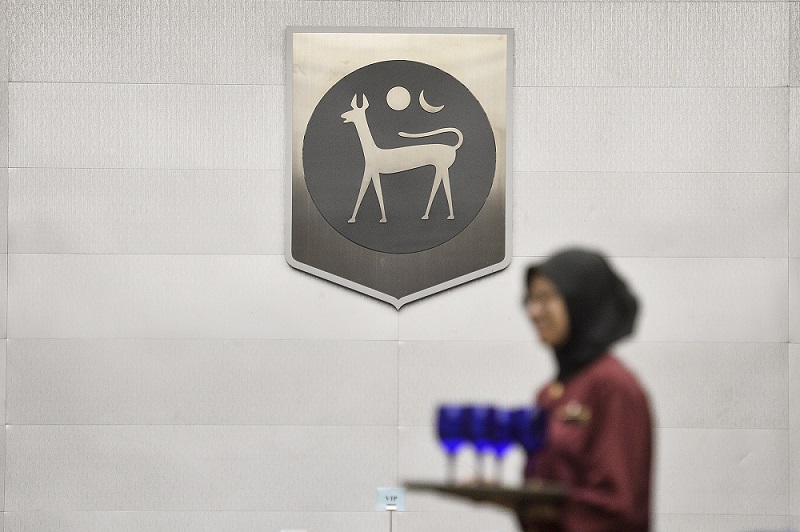KUALA LUMPUR, March 18 — Central banks’ monetary policy and governments’ fiscal policy can be two essential weapons for the Asean economies to use to manoeuvre against a potential recession caused by the Covid-19 outbreak and plunging oil prices, according to an economist.
Juwai IQI chief economist Shan Saeed said countries, including the United States, have already announced more than US$1 trillion (RM4.4 trillion) worth of economic stimulus to boost economic growth.
On February 27, prior to the World Health Organisation declaring the Covid-19 outbreak as a pandemic, the Malaysian government announced a RM20 billion economic stimulus package aimed at assisting industries affected by the coronavirus.
Recently, the government announced more measures, including additional nationwide electricity discount which was expected to involve RM500 million as well as a RM120 million allocation to provide a RM600-a-month cash assistance, for up to six months, for workers forced to take unpaid leave.
Affected employees with monthly salaries of below RM4,000 are also allowed to withdraw from the Employee Insurance System.
Meanwhile, on the monetary stance, Bank Negara Malaysia reduced the overnight policy rate by 25 basis points to 2.50 per cent early this month, the second cut this year, to support projected improvement in economic growth amid price stability.
“I believe that the role of fiscal and monetary policies have become very strategic tools during this volatile period.
“And Malaysia, being one of the members in the Belt and Road Initiative adopted by the Chinese government, will become much stronger soon; as the country will come back into the market and will be spending a lot of money in the fiscal/ monetary space that it has,” he told Bernama.
Shan said Juwai IQI believes that Malaysia can still achieve a growth rate of between three and four per cent this year, premised on the government and central bank’s policies as well as the Belt and Road Initiative.
“Next, the game is in the south (of the Belt and Road corridor). Among the economies located in the south are Malaysia, the Philippines, Pakistan, Djibouti and Turkey. China holds significant values for these countries because they are important for China,” he stressed.
And as for Malaysia, he said the country is important because of her strategic position geographically, whereby the Strait of Malacca/Strait of Hormuz witnessed 40 per cent of global oil supply passing through it.
Therefore, global investors will still value Malaysia because of her strategic location, besides the stability in macroeconomic activities, he opined.
“The biggest advantage Malaysia has is its people who are tech-savvy and productive, and the solid productivity of labour force drives the gross domestic product size. So fret not, the economy will stabilise especially when oil prices recover in the next six to nine months’ time,” he added.
According to S&P Global Ratings, China is recovering gradually from an economic blow that is much harder than most expected.
Its February data confirmed a huge shock to activity in the first quarter with investment accounting for about 45 per cent of China’s economy. And fixed asset investment in January and February combined plunged by almost 25 per cent compared with a year ago.
“Over the same period, industrial production and retail sales fell by 14 per cent and 21 per cent. These are unprecedented numbers. This not only confirms a hard hit to growth but indicates that the authorities are not smoothing the data,” the rating agency said in a note.
For 2020 as a whole, S&P forecast a lower 2.9 per cent growth from 4.8 per cent previously and expected China’s economy to shrink by 10 per cent during the first quarter over the same period a year ago.
However, come the third quarter, it forecast that year-on-year growth rates would turn positive at about eight per cent and peak well into double-digits in the first quarter of 2021.
Concurring with this, Shan said it is understandable that economies globally are facing a downturn amid the virus spreading like wildfire, but said that the recession that is coming in the US and Europe will likely be worse than 1933.
Between 1929 and 1939, countries across the world were challenged by the “Great Depression”, the longest and most severe depression causing drastic declines in output, severe unemployment and acute deflation.
Originating in Wuhan, China, Covid-19 has spread to more than 150 countries, infecting 199,488 people and claiming 8,009 lives globally to-date.
The deadly virus has dragged global stocks markets into a slump and crude oil prices took a plunge.
In the United States earlier this week, the Dow Jones declined by 13 per cent, its worst rout since Black Monday 1987, which led the US Federal Reserve to reduce interest rates to a range of 0 per cent to 0.5 per cent over the weekend.
On the local front, the FBM KLCI today fell 17.57 points to 1,239.01 — the lowest level since March 2010. — Bernama






















